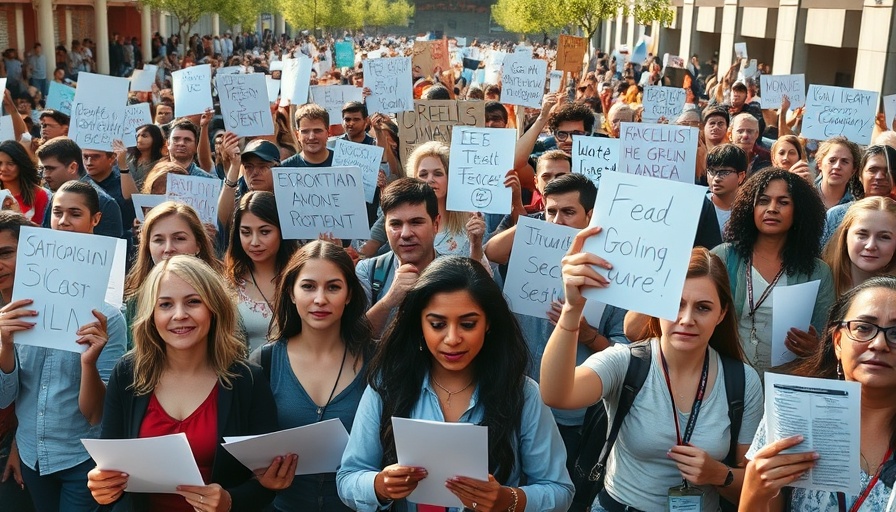
Tanzanian Opposition Faces Major Setback in Upcoming Elections
Tanzania's political landscape is facing turmoil, following the election commission's disqualification of the main opposition party, Chadema, from participating in the upcoming general elections slated for October. This controversial decision has brought widespread condemnation from the opposition and has raised significant concerns about the country's democratic process.
In 'Tanzania opposition protests election ban,' the turmoil surrounding opposition disqualification raises essential questions around the state of democracy in Tanzania.
The Unconstitutional Ban: What It Could Mean for Democracy
Chadema's legal secretary asserted that the election commission's ban on the party is unconstitutional, igniting a debate around governance and electoral integrity in Tanzania. The demand for a signed document respecting the commission's decisions has been interpreted by some as a pretext to undermine opposition credibility. Without the participation of Chadema, the elections could resemble a farcical exercise deprived of genuine political competition.
Political Climate Sensitive to Arrests and Charges
The announcement of Chadema’s disqualification followed closely on the heels of the arrest of its leader, Tundu Lisu, who has now been charged with treason. This sequence of events highlights a pattern of intimidation against opposition figures, raising alarms about civil liberties in Tanzania. Observers are concerned that Lisu's arrest sends a strong signal to dissenters that the current regime is unwilling to tolerate critical voices.
Implications for President Samia Suluhu Hassan's Governance
This general election marks an important moment for President Samia Suluhu Hassan, as it will be her first since succeeding John Magufuli in 2020. With the possibility of running uncontested, Hassan's legitimacy as president could be called into question, both domestically and internationally. A void in political opposition invites scrutiny on the governance metrics of her administration, particularly concerning democratic freedoms and human rights.
International Responses to Tanzania's Election Crisis
The fallout from Tanzania's electoral situation may catalyze international attention and concern. As observers analyze developments in African politics, this case reiterates the necessity for international bodies, such as the African Union, to engage with Tanzania’s political dynamics and advocate for a fair electoral process. Keeping the global audience informed can lend transparency to the situation and pressure the regime to alter its course.
Future Predictions: The Path Ahead for Tanzanian Politics
As the October elections approach, various scenarios remain possible. Should the ban on Chadema be upheld, it could lead to increased civil unrest and political strikes among opposition supporters. Alternatively, should the party find a way to participate despite the restrictions, it might invigorate public discourse on democratic rights. Civilians are increasingly aware of the dramatic implications such political disruptions have on their freedoms, urging many to take a stand.
Activism and Civic Engagement: A Call for Tanzania's Future
This political crisis underscores the importance of civic engagement and activism within Tanzania. Educated youth and professionals have the potential to galvanize public opinion and create spaces for civic dialogue, emphasizing the nation's right to fair governance. Evidence suggests that societies with active citizen participation foster greater accountability among leaders, marking a critical area for Tanzania's future development.
Conclusion: The Call for Reform
The unfolding political saga in Tanzania may not just be an isolated incident but a reflection of broader trends within the region, prompting various stakeholders to rethink their strategies around governance and political engagement. This moment calls for an active civil society, eager to reclaim their right to participate in democracy. It is imperative for citizens and global observers alike to maintain vigilance, advocating for transparency and accountability to secure a better future for Tanzania.
 Add Row
Add Row  Add
Add 




Write A Comment